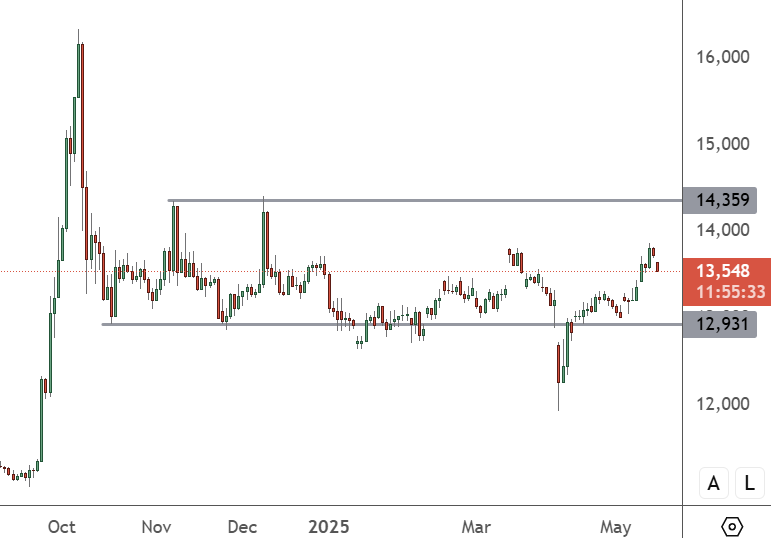Some weaker economic data for the Chinese economy continues to weigh on the stock market.

The CHINA 50 index has found some small resistance ahead of the 14,000 level but still trades in the familiar range from October. The 12,931 level is strong support for the market and the 14,359 level is the barrier to further highs.
China’s economy displayed further weakness in April as President Donald Trump’s trade war hurt exports. Retail sales, property and investment data were all weaker than economists had forecast on Monday.
Industrial production also slowed as Trump’s high tariffs of up to 145%, and a 125% retaliatory duty from Beijing had an adverse effect. National Statistics Bureau spokesperson Fu Linghui said the overall trend was positive but said “external shocks” had gained intensity.
“It should also be noted that there are still many outside unstable and uncertain factors, and the foundation for the continued recovery and improvement of the national economy needs to be further consolidated,” Fu said.
Chinese consumers have held back on spending after the extended downturn in the housing market that is a big source of household wealth. Retail sales were 5.1% higher from a year ago, but below economists’ expectations for a 6% gain. Deflationary threats are still in play with the consumer price index falling 0.1% in April.
“The current overall price level is low, which puts pressure on production and companies’ operations and affects jobs and incomes, so it’s important to promote a reasonable recovery of prices,” Fu added.
Industrial production rose by 6.1% from a year earlier, but was lower than the 7.7% seen in March as tariffs and other trade issues hurt exports.
Economic data is light for the rest of the week but slower foreign inflows to stocks are another reason for the consolidation in stocks. Domestic investors have been piling into gold during April and that is also a weight on the stock volume.


